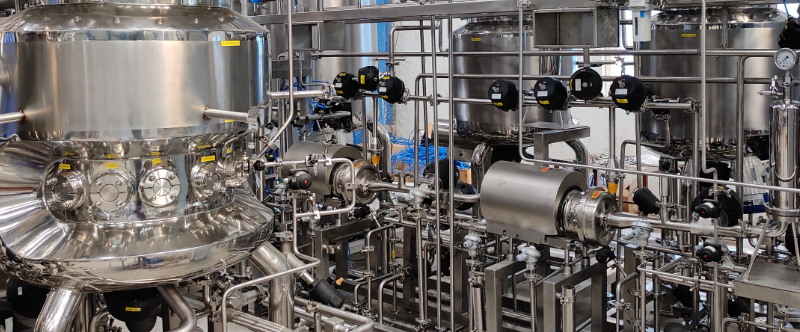Water as a resource is as important to the pharmaceutical industry as it is to life. It is widely used as a raw material and ingredient in many formulations, processing, or production of pharmaceutical products. In order to control the quality of water for pharmaceutical use, it has to live up to the USP purified water specifications.
So What Exactly are USP Purified Water Specifications?
As we know, apart from being an essential raw material in the production of various pharmaceutical products, water is also used as a cleaning agent for rinsing vessels and equipment used in the production of pharmaceutical products and many other processes. Given the sensitive use case of water in pharma, it has to adhere to the highest standards of quality set forth by different authorizing bodies.
United States Pharmacopoeia (USP) is a book of practices that clearly lays out the different specifics of the quality of water that can be used for different pharmaceutical practices. These are called the USP purified water specifications, which are one of the most popular guidelines on the quality of water for pharmaceutical use.
Some of the other pharmacopeias around the world also include European Pharmacopoeia (EP), British Pharmacopoeia (BP), and Japanese Pharmacopoeia (JP).
Different USP Purified Water Specifications
The world of pharma is dynamic. There are different processes that lead to different products; however, if there is one thing that remains common, it is undisputable and consistent quality. Here are some of the USP purified water specifications for water used for pharmaceutical purposes:
Potable Water
Potable water is most commonly known as drinking water. It is perfectly suited for consumption, laundry, and other household chores, as well as the extraction of crude drugs. However, due to the presence of dissolved contaminants such as chlorides, sulfates, bicarbonates, and different minerals and compounds, it is not suitable for manufacturing pharmaceutical products.
It is usually sourced from the municipal water supply, wells, etc., and is subjected to major seasonal changes. While it is not directly used in producing pharma products, it is often treated adequately and used in cleaning manufacturing equipment.
Purified Water
Purified water in pharmaceuticals is most commonly derived from the processes like reverse osmosis, electric de-ionization, or distillation. It is free of chloride, calcium, sulfates, ammonia, carbon dioxide, and heavy metals.
Purified water is widely used in different pharmaceutical practices, like cleaning the manufacturing equipment and paraphernalia, and is the main constituent for formulating, processing, and manufacturing active pharma products. Some of the most commonly used purified water include:
- Production of oral and topical products
- Granulation process for tablets and capsules
- Being the feed water for WFI (Water for Injection)
- Being the feed water for pharmaceutical grade clean steam
- Preparation of cleaning solutions
Water for Injection
Water for Injection (WFI) is a pyrogen-free form of water mostly used as a parenteral solution for administering medicines to patients intravenously. Additionally, ampoules, caps, vials, and other machinery that the medication is exposed to during production or storage are also cleaned with WFI to prevent contamination.
WFI or Water for Injection is traditionally obtained by the process of distillation, with some operations also choosing reverse osmosis based on their specific requirements or capabilities. The objective of all these processes is, however, the same – taking purified water and further treating it to meet the standards of WFI. The distillation process for WFI includes the following two primary methods:
- Multiple Effect Distillation
- Vapour Compression Distillation
While there are certain minor differences in different pharmacopeia that are followed globally, WFI is usually checked for :
- Character (Appearance)
- Conductivity
- Heavy Metal
- Nitrates
- Total Organic Carbons (TOCs)
- Bacterial Endotoxins
- Total Viable Aerobic Count
It is one of the purest forms of water used in pharmaceutical operations.
Water for Haemodialysis
It is also known as dialysate and is used in dialysis, which is a common treatment for a patient suffering from kidney malfunctions. It is usually obtained by passing the water through a channel to filter out microparticles, organic, and inorganic matter and then using reverse osmosis as a final step. Salts such as sodium and bicarbonate are also added to them.
The main function of water for hemodialysis is to flush out toxins from the body.
Sterile Water for Inhalation
It is a form of purified water that is used for making inhalation solutions. It is essentially water for injection that is suitably packaged and used for its intended purpose. However, the accepted bacterial endotoxin content for sterile water for inhalation is less stringent than that of water for injection; hence it cannot be used for parental applications.
Sterile Water for Irrigation
Sterile water for irrigation is also water for injection that is packed in 1-liter capacity containers and is meant for rapid distribution. Its main objective is to moisten and bathe body tissues.
This form of sterile water has many applications and is usually used by surgeons during surgery. It is also used as a urologic irrigation solution, glycine solution, and sorbitol solution.
Water for Analytical Purposes
Water in pharma is not only used for manufacturing but also in large volumes of research that are an integral and constant part of the pharmaceutical industry. Just like production, different tests and analyses also require different forms of purified water. Distilled water, purified water, and de-ionized water are commonly used for analytical purposes.
The importance of purified water specifications for pharmaceutical use cannot be stressed enough. With tightening regulations and stricter controls around the quality of water used, it becomes imperative that we use water treatment systems that comply with each of the standards. TSA Water System helps your business not only achieve but also maintain the required level of water quality. Our impeccable track record of helping pharmaceutical companies attain the desired levels of water quality has been crucial in both their and our growth over the years.






